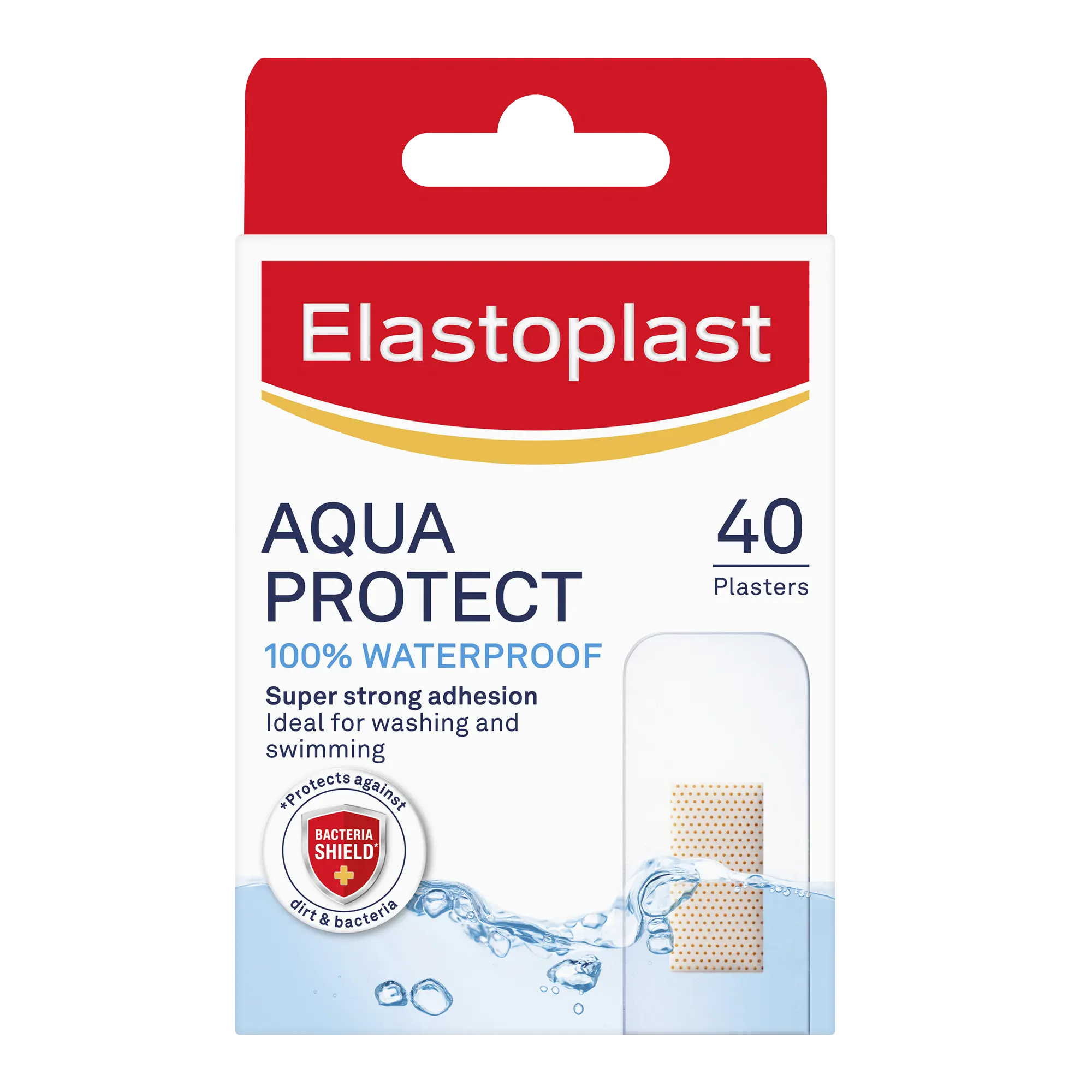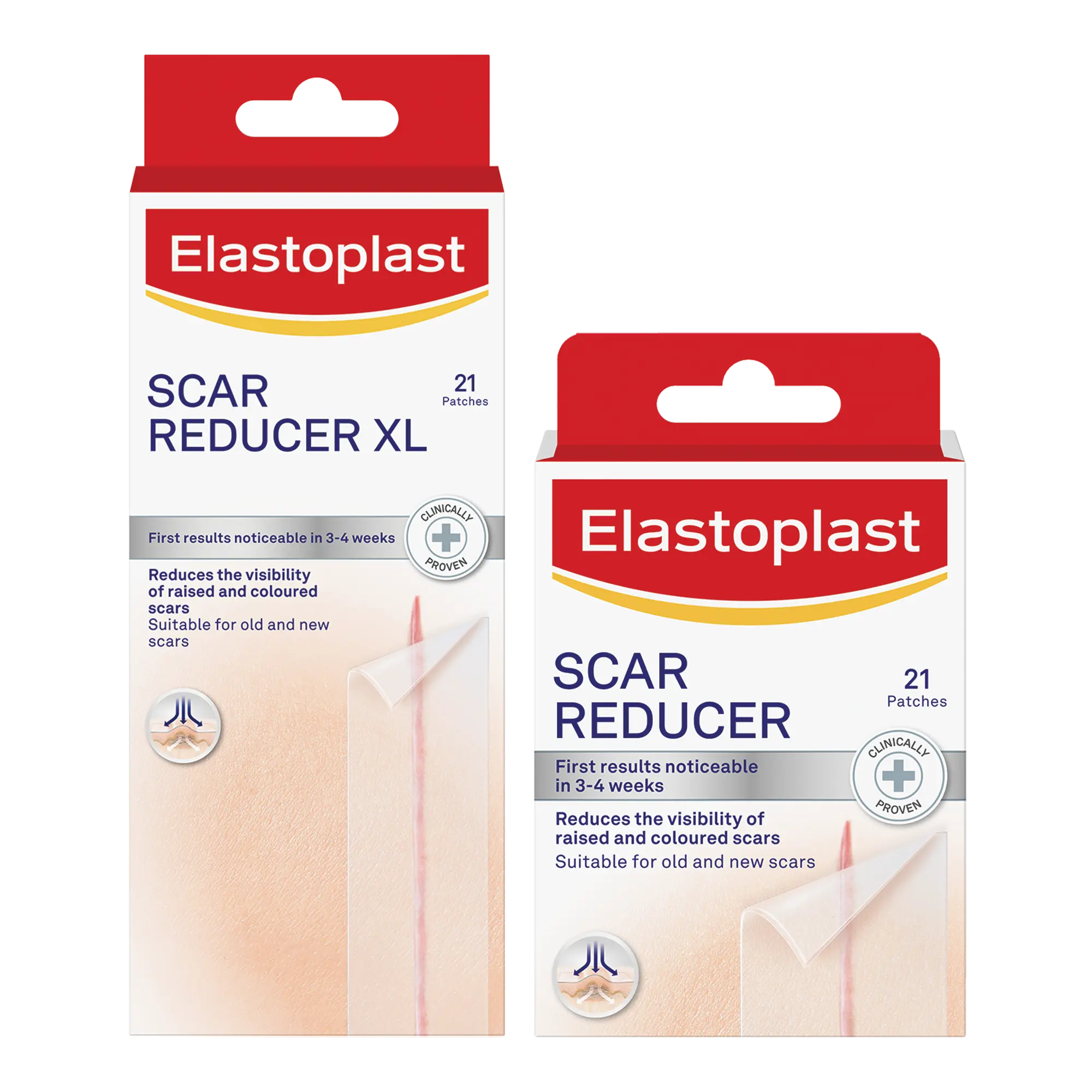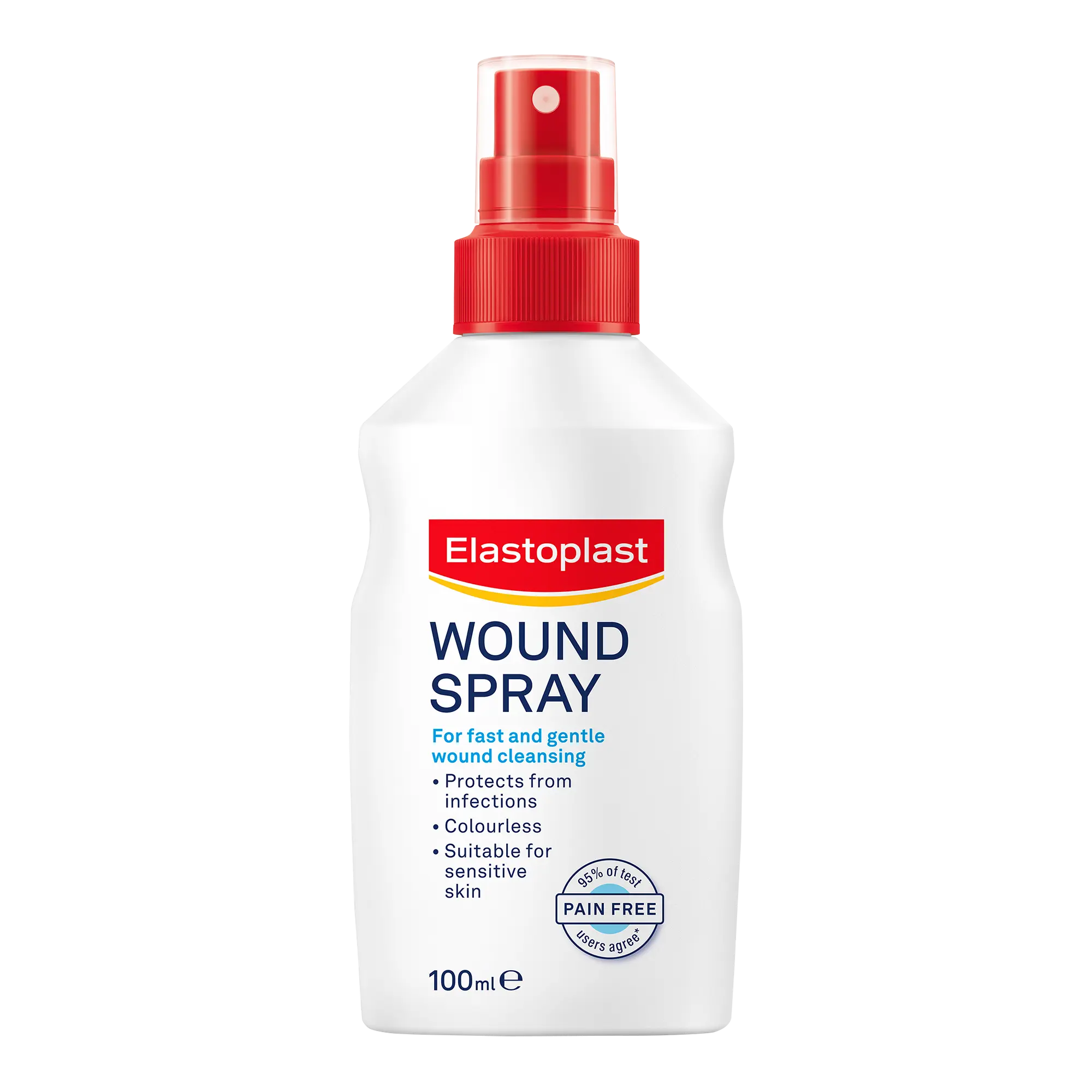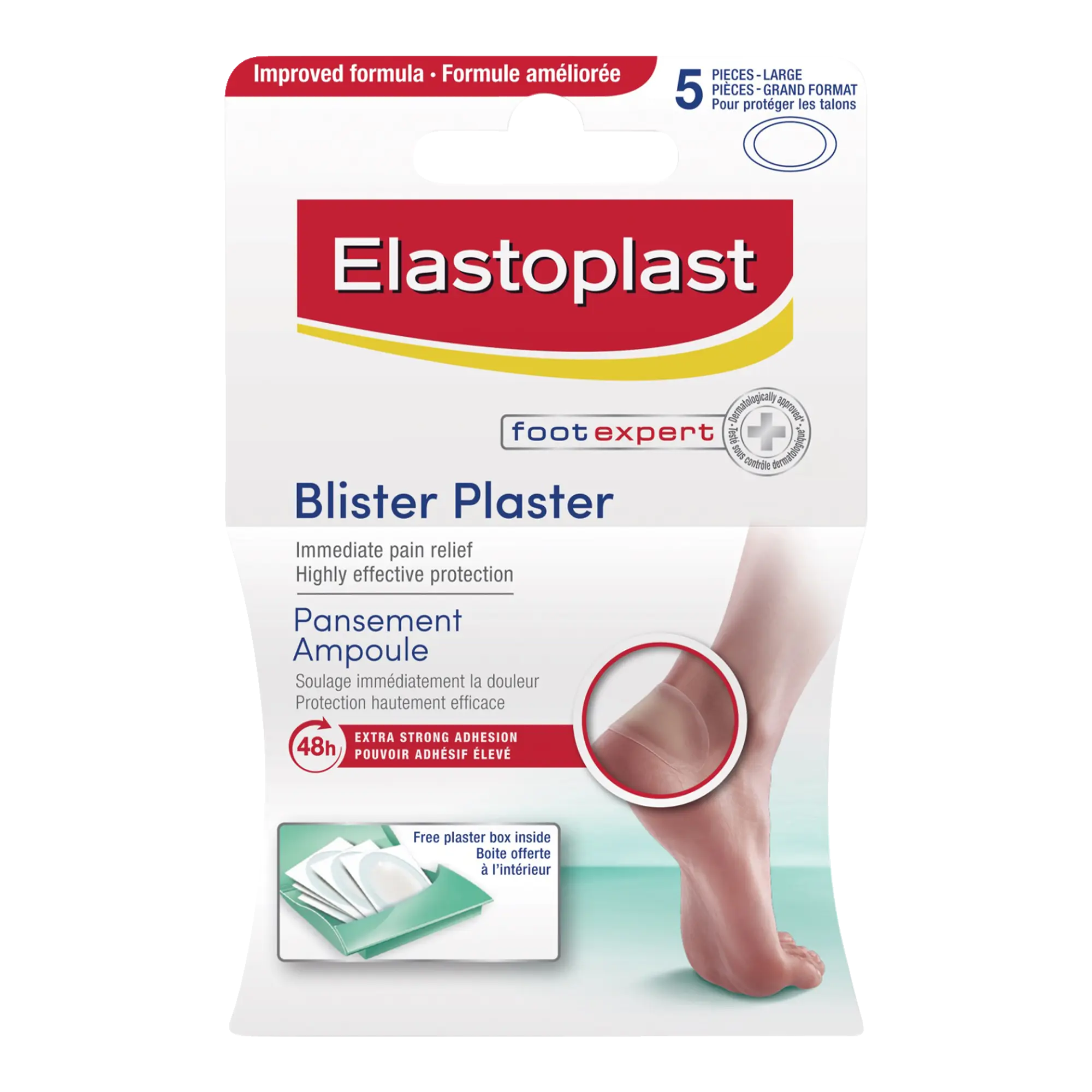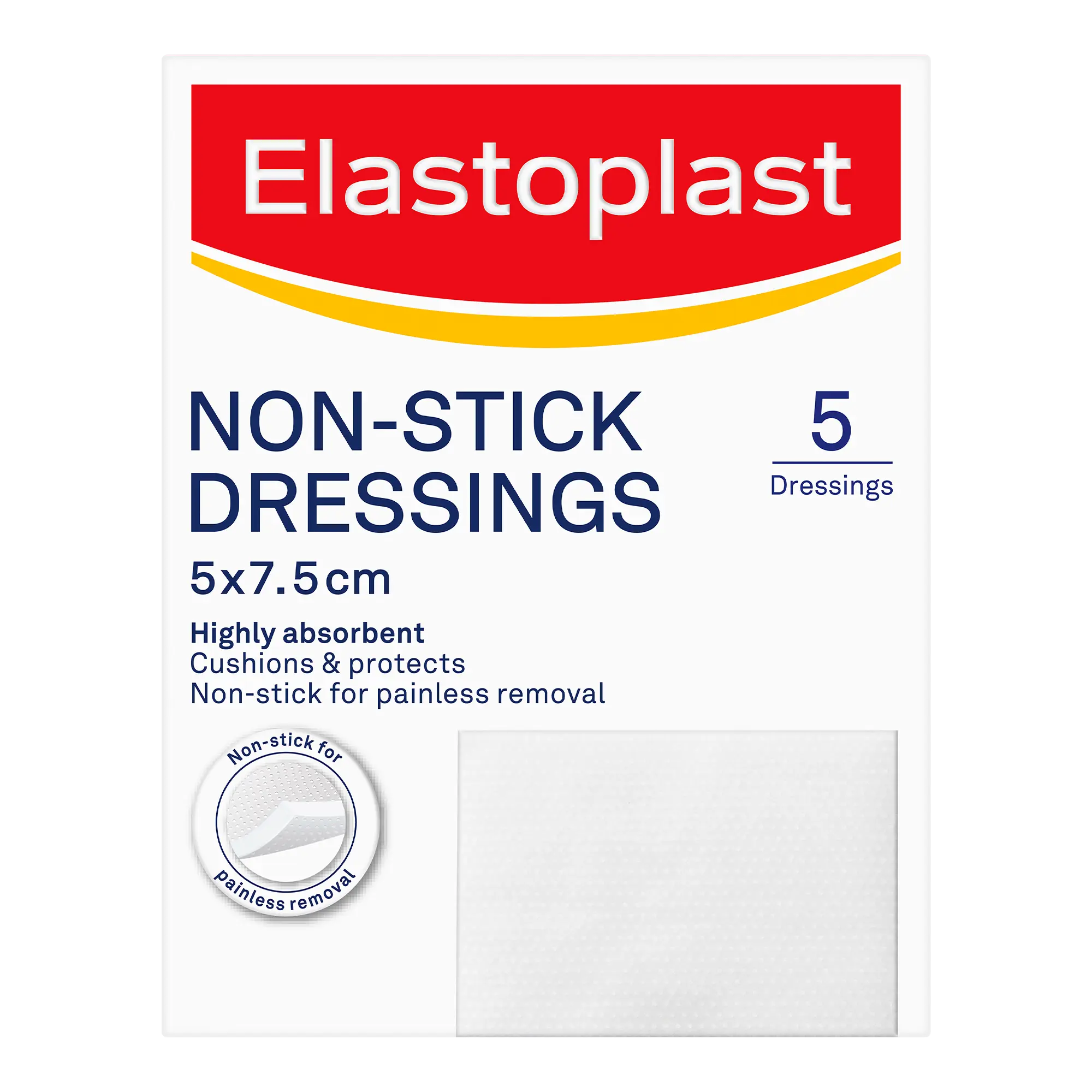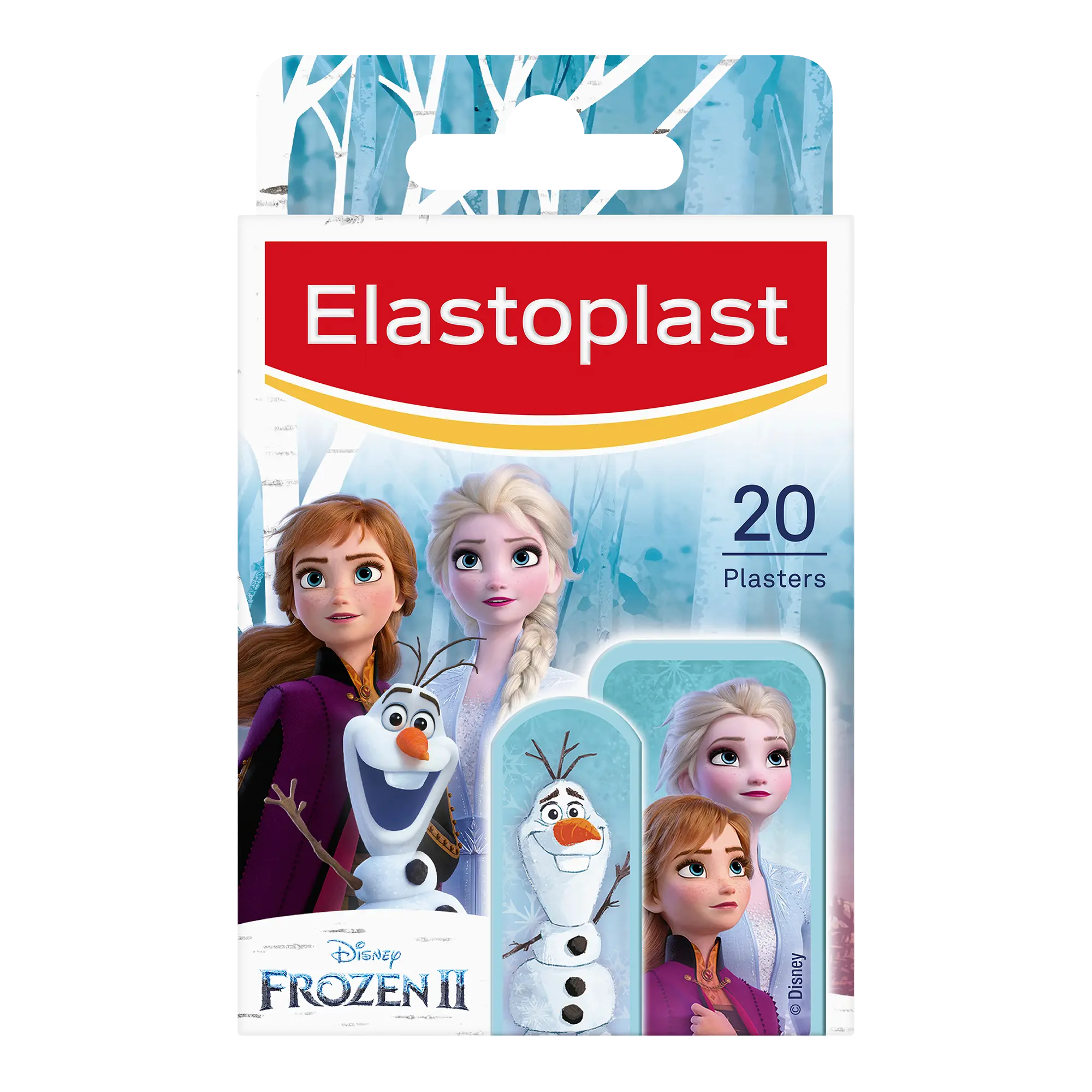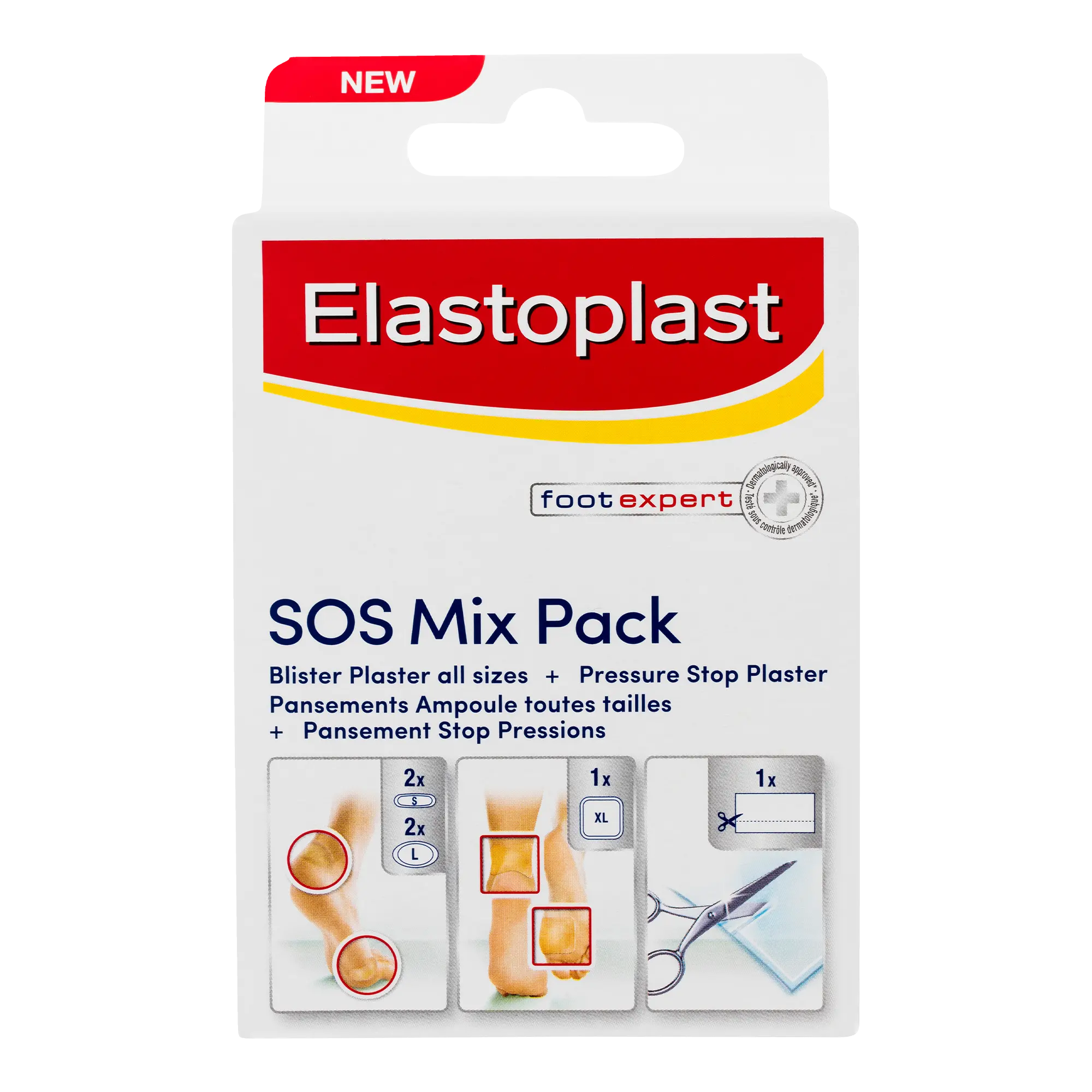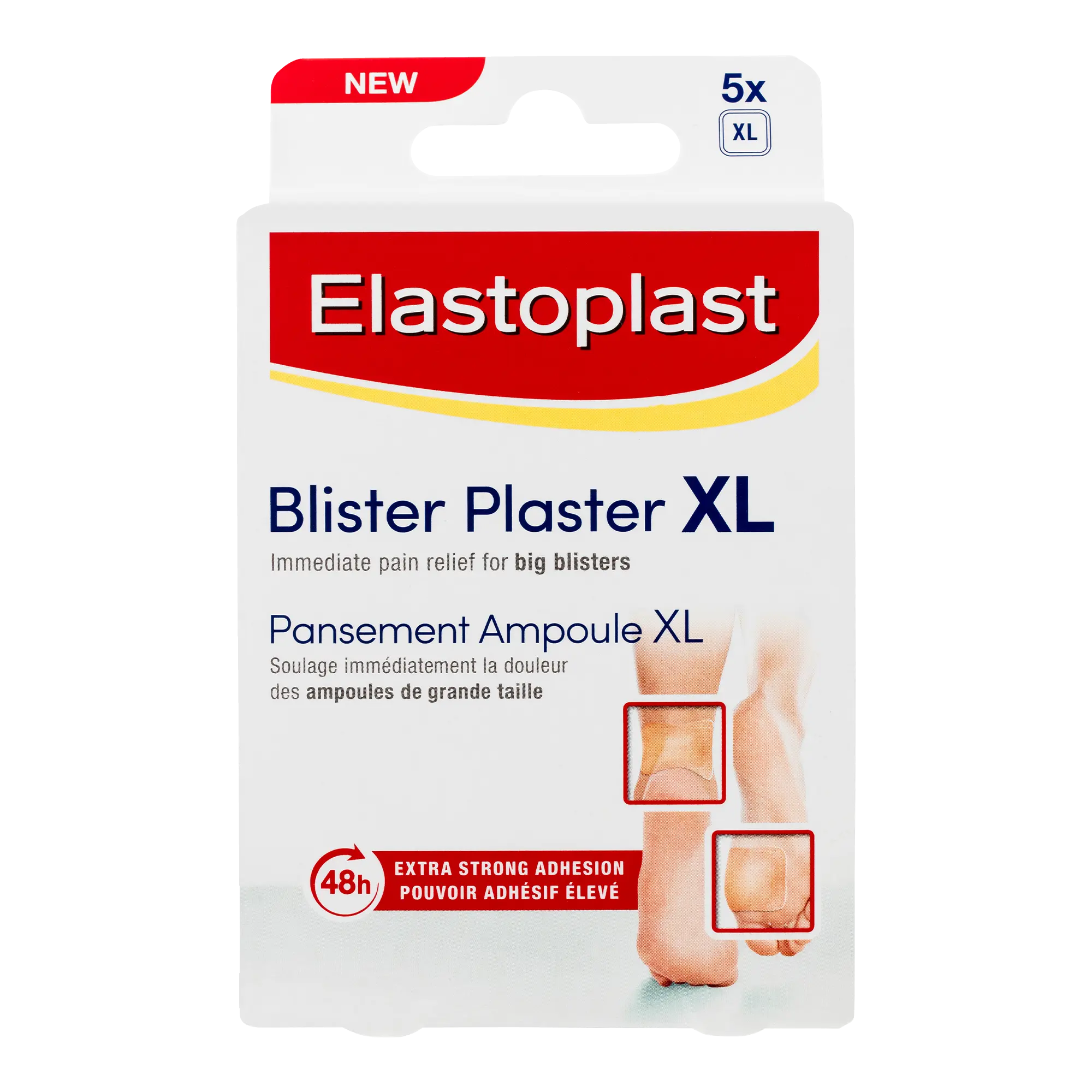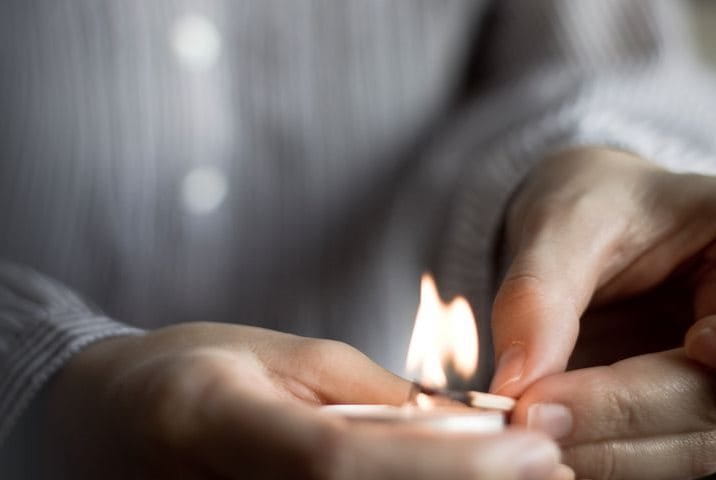Details
The Elastoplast Large Blister Plaster is specially designed to aid recovery of large blisters on the feet, ankles, heels and soles. Made from firm fitting hydrocolloid material that protects blisters from further rubbing and infection while speeding up the healing process.
Superabsorbers work under the plaster work to soak up fluid, forming a layer and eliminating excess pressure and relieving pain. Specifically made for covering large areas on the feet, the Elastoplast Large Blister Plaster will stay in place for up to 48 hours of relief.
This large plaster is ideal for fast and effective relief from the pain of blisters on feet.

Dermatologically approved
Based on clinical studies, this product is confirmed to be skin-compatible.
Application
Dr Kuhlmann’s Expert Tips – Help your blisters heal faster with proper application

- Self-surgery is not recommended. For example, don’t puncture the blister and don’t remove any outer layers of skin, because this can cause infection
- Existing blisters should be disinfected
- Make sure your skin is clean and dry before applying the blister plaster
- Attach the plaster without wrinkles and press firmly
- Don’t change the plaster until it falls off by itself
Ingredients
Product Content
|
Product |
Type |
Size |
Quantity |
||||
|---|---|---|---|---|---|---|---|
|
Product : |
Blister Plaster Large |
Type : |
|
Size : |
5.8cm x 3.4cm |
Quantity : |
5 Pieces |
FAQ (7)
-
1. Why do we get blisters?
Pressure and friction are usually the cause of blisters. Blisters will appear in areas where the skin is exposed to these over a long period of time, for example during sports or when wearing a new pair of tight shoes. This causes the upper layer of the skin (the epidermis) to move back and forth over the underlying layer. A space then forms between both skin layers, which becomes filled with fluid – and a blister is formed. -
2. What’s the best way to treat a blister?
If the blister has already formed, protect it from further pressure and contamination with a blister plaster. Elastoplast Blister Plasters work so well because they contain the Hydrocolloid Technology to absorb the blister fluid and create an optimal moist wound healing environment. This allows the wound to heal faster and restore quickly. At the same time, the blister plaster seals and protects the area against dirt and bacteria. The Elastoplast Blister Plaster works to stop further pressure and relieves pressure and pain immediately, so you’ll feel better right away. -
3. Do I need to pop the blister? What should I do if it popped accidentally?
Ideally a blister should not be ruptured. This is because the blister exists to protect the skin underneath from additional infection. If a blister is already open, the remaining skin layer should not be removed. Either way, it’s important to protect the wound from external influences and contamination. So, carefully clean and dry the affected area before applying anything to it. If the blister is already deroofed we recommend additional disinfection.
Elastoplast Blister Plaster relieves pain from pressure and friction immediately and creates an optimal moist wound healing environment that allows the wound to heal faster. During the healing process, the blister is sealed and protected from dirt and bacteria.
-
4. Can I use a healing cream underneath the Elastoplast Blister Plaster?
No, we don’t recommend it. Applying any ointment, cream or other product under the blister plaster could reduce its effectiveness and adhesive power. -
5. How often do I need to change the blister plaster?
Elastoplast Blister Plaster with its Hydrocolloid Technology creates an optimal moist wound healing environment that allows the wound to heal faster. So that the healing process is not disturbed, and as long as no signs of infection occur the plaster should be left in place for several days. It should only be changed when it peels off by itself. -
Always read the label. Use only as directed. If symptoms persist consult your healthcare professional.
-
6. How to heal heel blisters quickly?
If you notice a blister on your heel, you’ll need to stop whatever activity you’re doing if you want it to heal quickly. Any boots or shoes you’re wearing will need to come off too. If you can’t stop what you’re doing, immediately cover your heel blister with an Elastoplast Large Blister Plaster. You may need to drain your blister with a sterilised needle first.
Stay off your blister for as long as possible.
